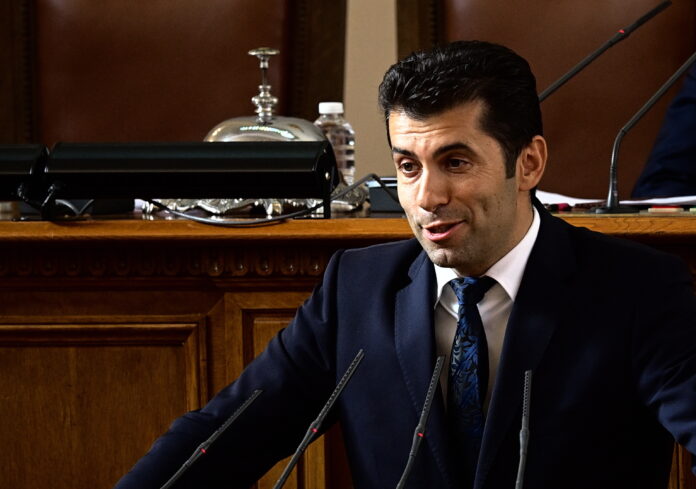The coalition government of Bulgaria, led by the pro-European Kiril Petkov, has lost the motion of censure presented by the conservative populist opposition, The fall of Petkov, in addition to leading to possible new elections, the fourth in less than 18 months, means delaying the efforts of the Balkan countries to enter the European Union, an issue that the Twenty-seven will deal with at the summit that starts this Thursday in Brussels.
The center-right opposition party GERB tabled the motion last week, accusing the government of mismanaging public finances and economic policy and failing to address rising inflation. The motion of censure was approved by 123 votes in favor, 116 against and no abstentions.
Petkov, a Harvard-educated businessman, formed a four-party coalition government in December. He has pushed ever since for the resolution of the dispute that has blocked North Macedonia’s attempts at the EU and indirectly Albania’s as well. Since 2020, Sofia has been in a dispute with Skopje over the common past of both countries and demands more guarantees for the rights of ethnic Bulgarians in that country. In addition, it demands that the neighboring country abandon offensive qualifications about history, which it considers “hate language”, such as signs on monuments and the term in school books such as “fascist occupier” during World War II, when Bulgaria was an ally. of Nazi Germany. The neighboring country refuses to negotiate its identity and its language.
North Macedonia has maintained EU candidate status for 17 years and received the green light in 2020 to start accession talks, although no date was set for the start of negotiations. Russia’s invasion of Ukraine on February 24 has prompted the EU to consider accelerating its accession process to the Western Balkans to prevent Moscow from expanding its influence in the region. France, currently holding the rotating EU Presidency, has even tried to clear the way ahead of a summit on the Western Balkans scheduled for Thursday and Friday. After the fall of the Petkov government today, it is ruled out that Bulgaria will lift its veto against North Macedonia in the coming days, as expected in Skopje.
Bulgarian President Rumen Radev will now hold consultations with the parliamentary parties with the intention of forming a new majority government. If this fails, he could install a caretaker cabinet before calling parliamentary elections.
Observers believe that the political instability that is returning to Bulgaria will favor pro-Russian parties, especially the far-right Revival party, although it only has 13 seats out of 240 in the hemicycle. Revival has a huge presence on social media and their pitch is that “Bulgaria should support Russia and not Ukraine”.
Russia’s influence in the country is considerable and the fear that arises with the holding of new elections is that precisely that influence will be reinforced. Petkov, very involved in the fight against corruption and with a Europeanist vocation, has been an uncomfortable ruler for many sectors of power.
Petko has supported Western sanctions against Russia since it launched its invasion on February 24 and even sacked its defense minister, Stefan Yanev, for calling the invasion a “special military operation,” the Kremlin’s favorite description of its war. His fall is a blow to North Macedonia and Albania, but also to Bulgaria, the poorest country in the European Union and with the weakest institutions.
Conforms to The Trust Project criteria








